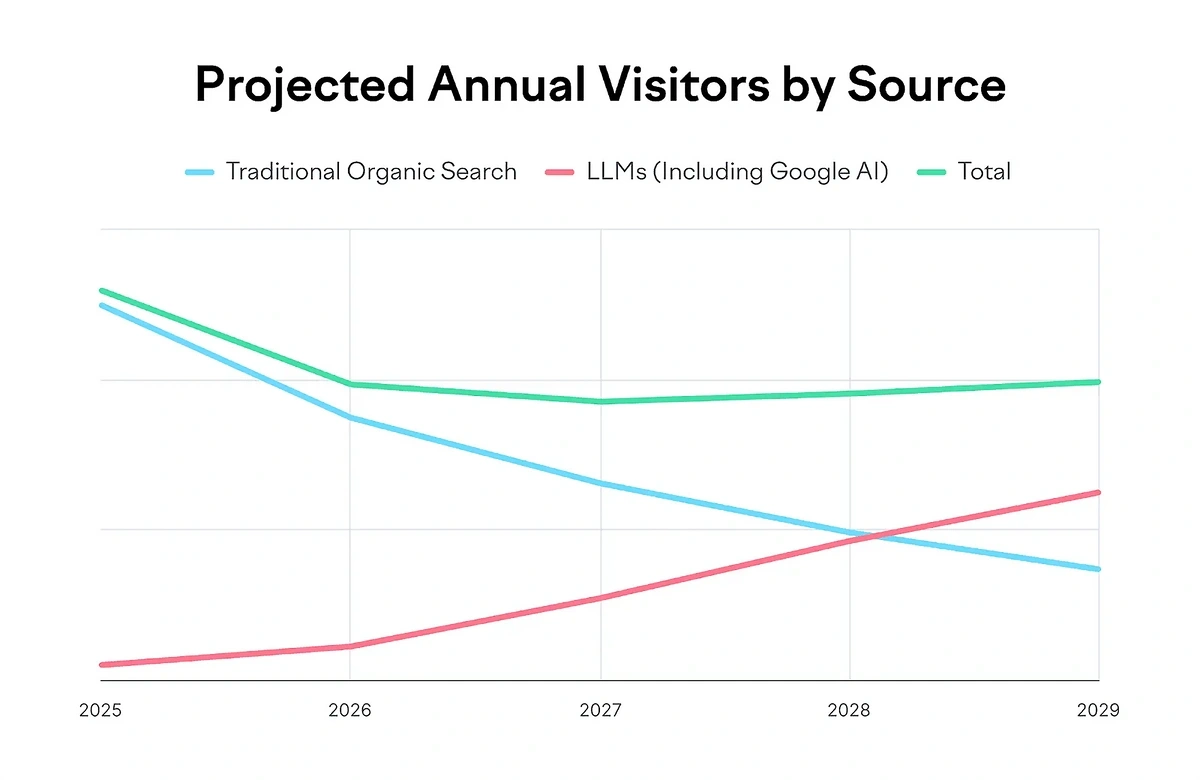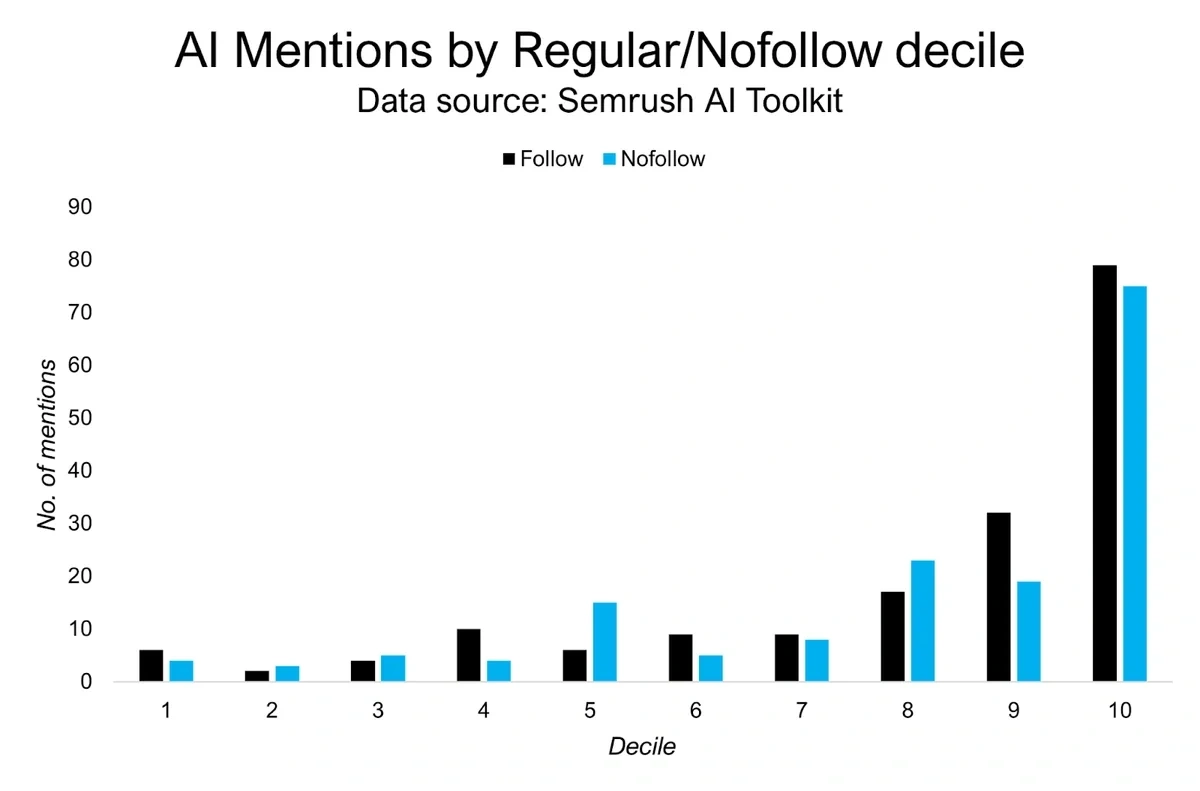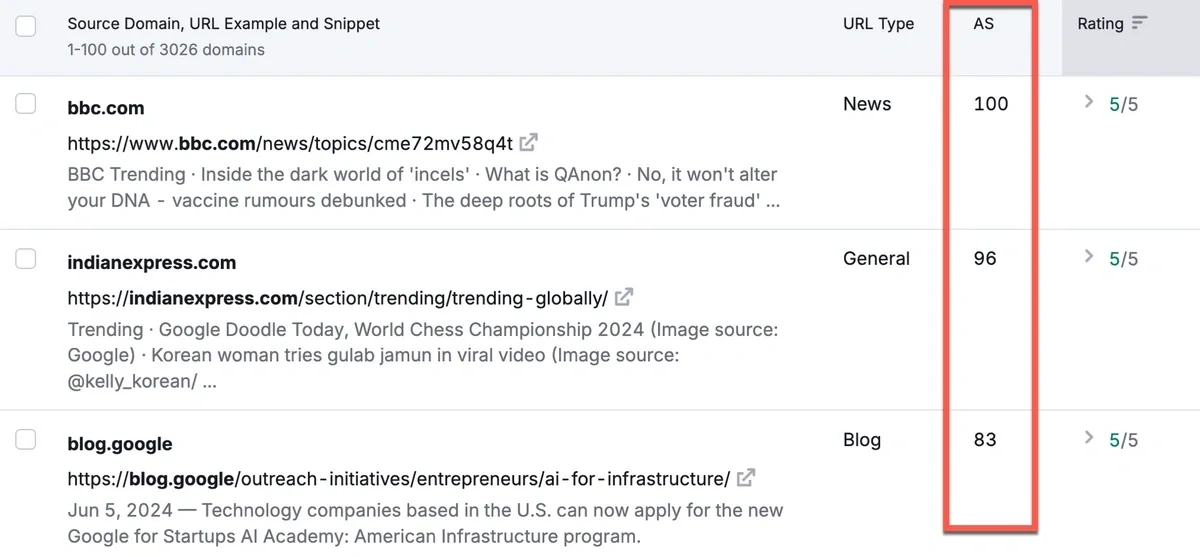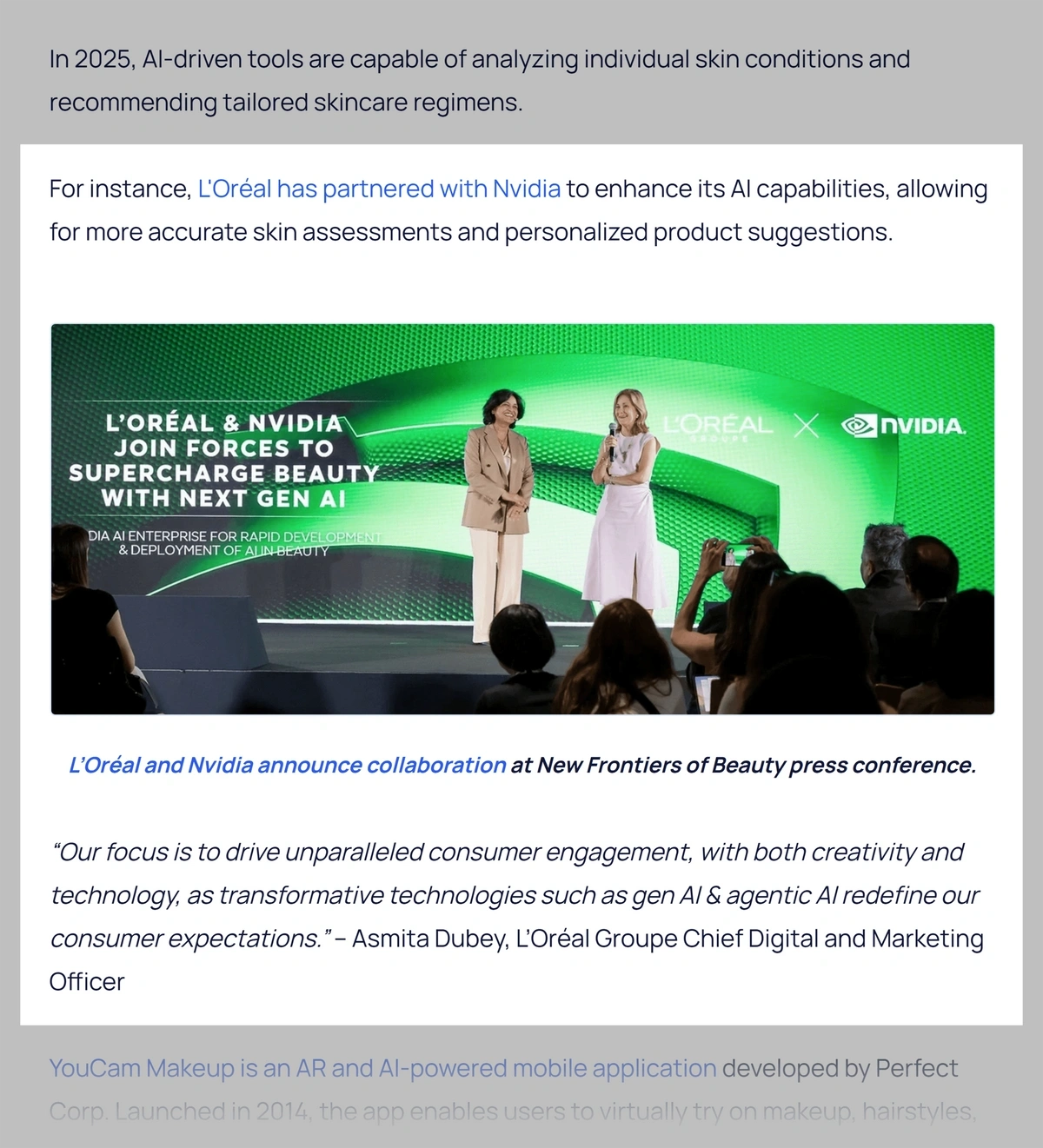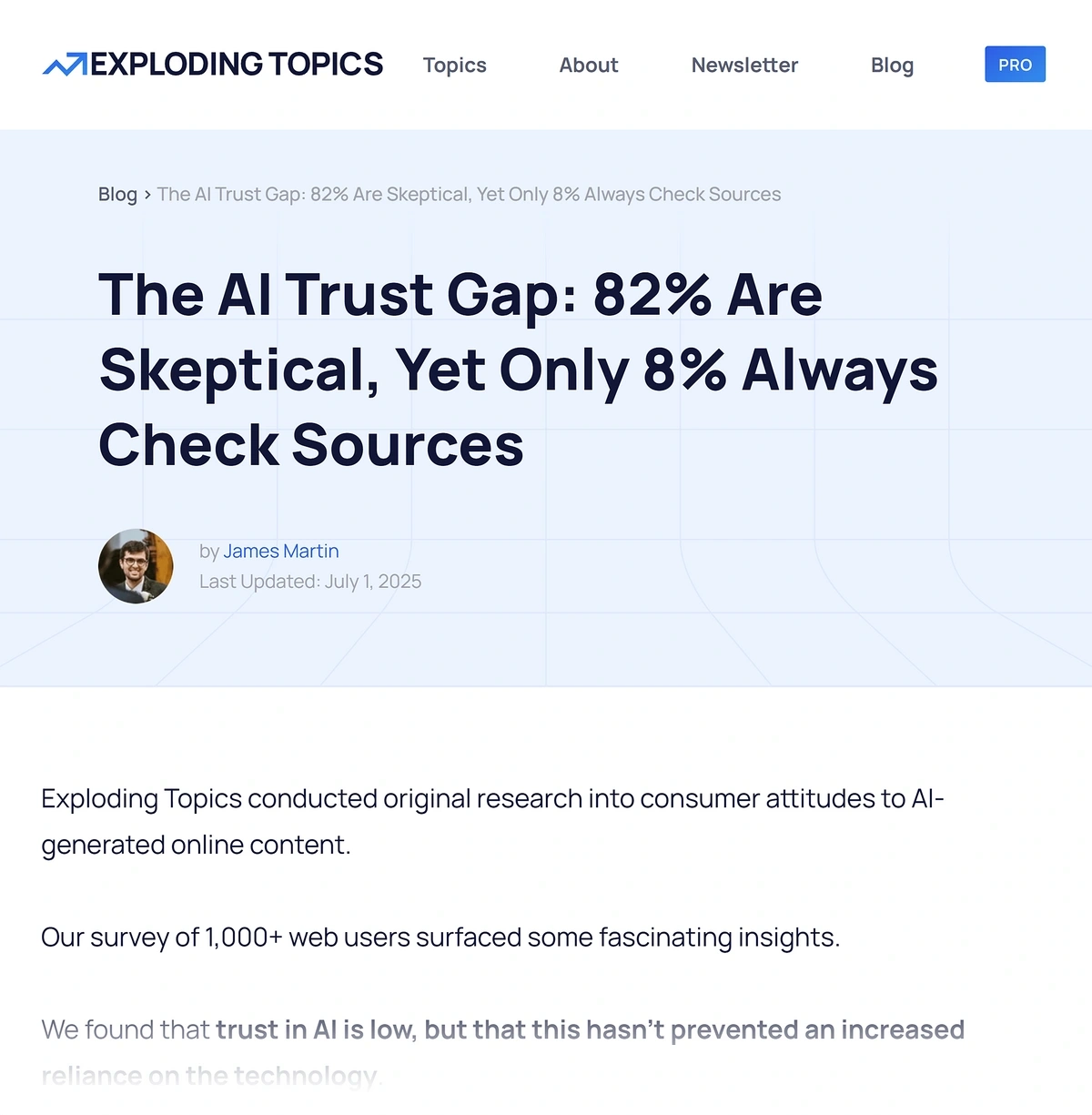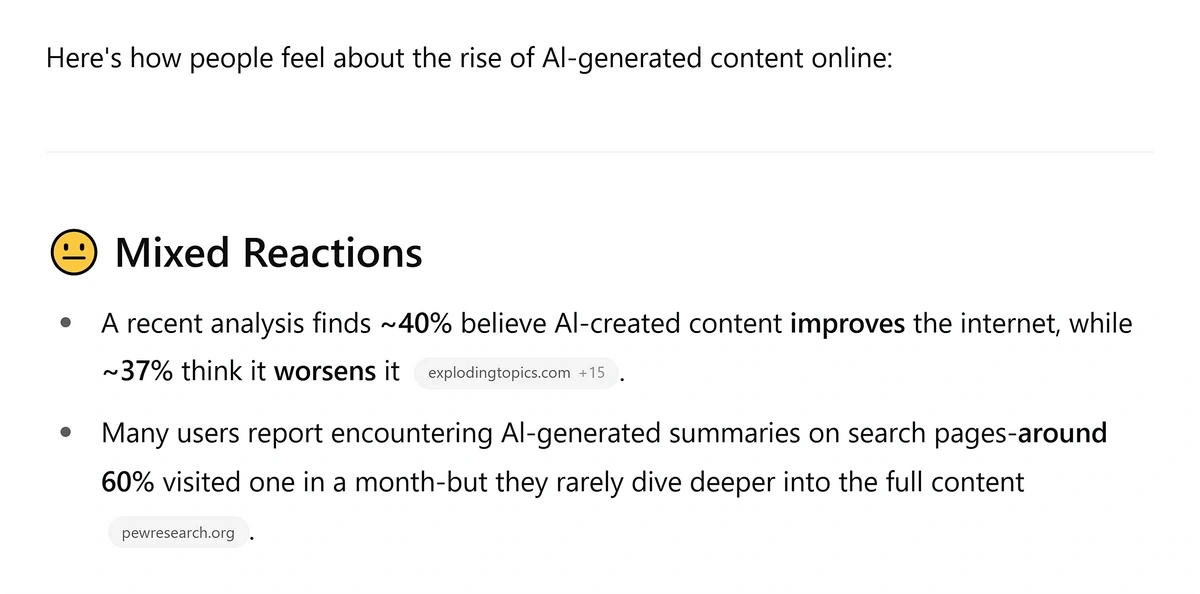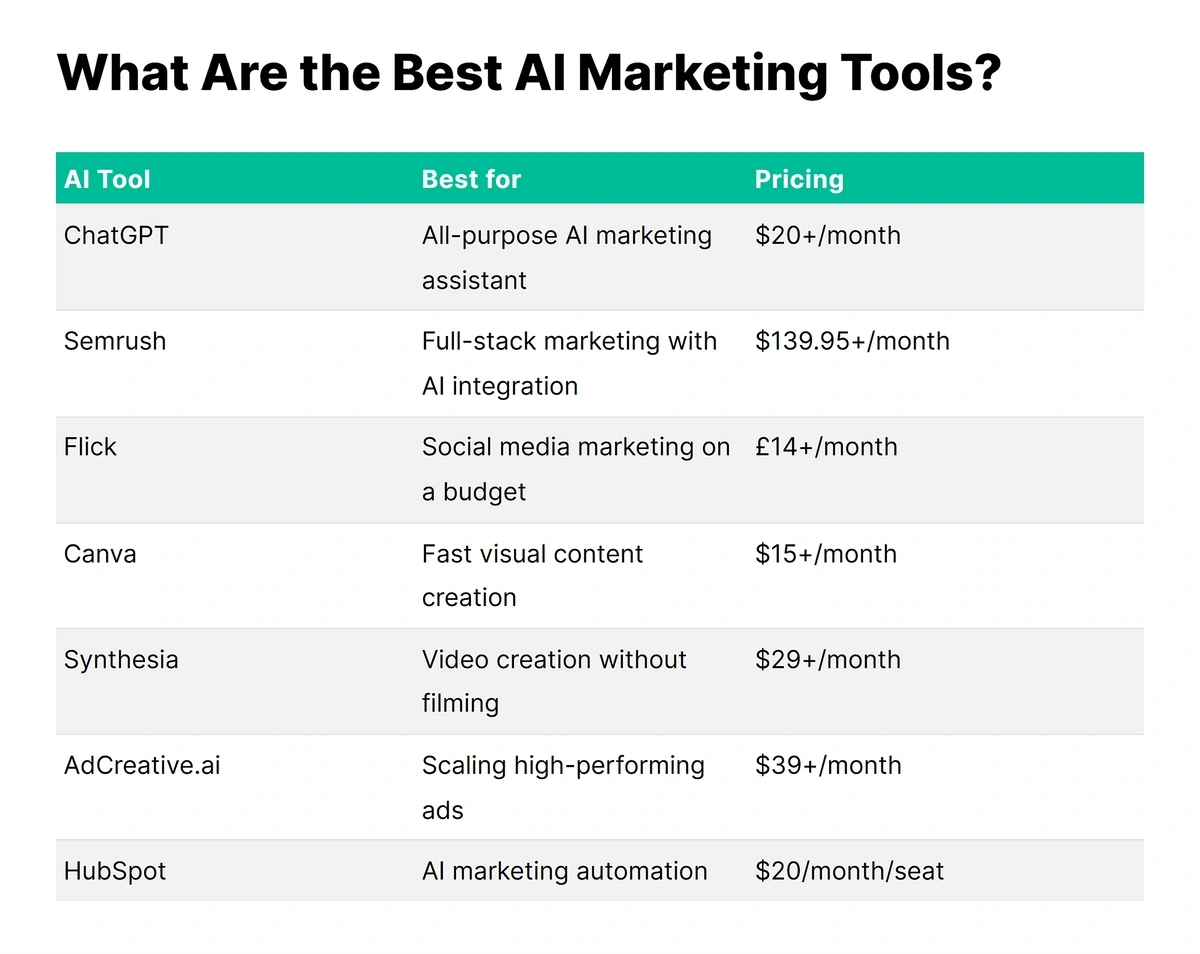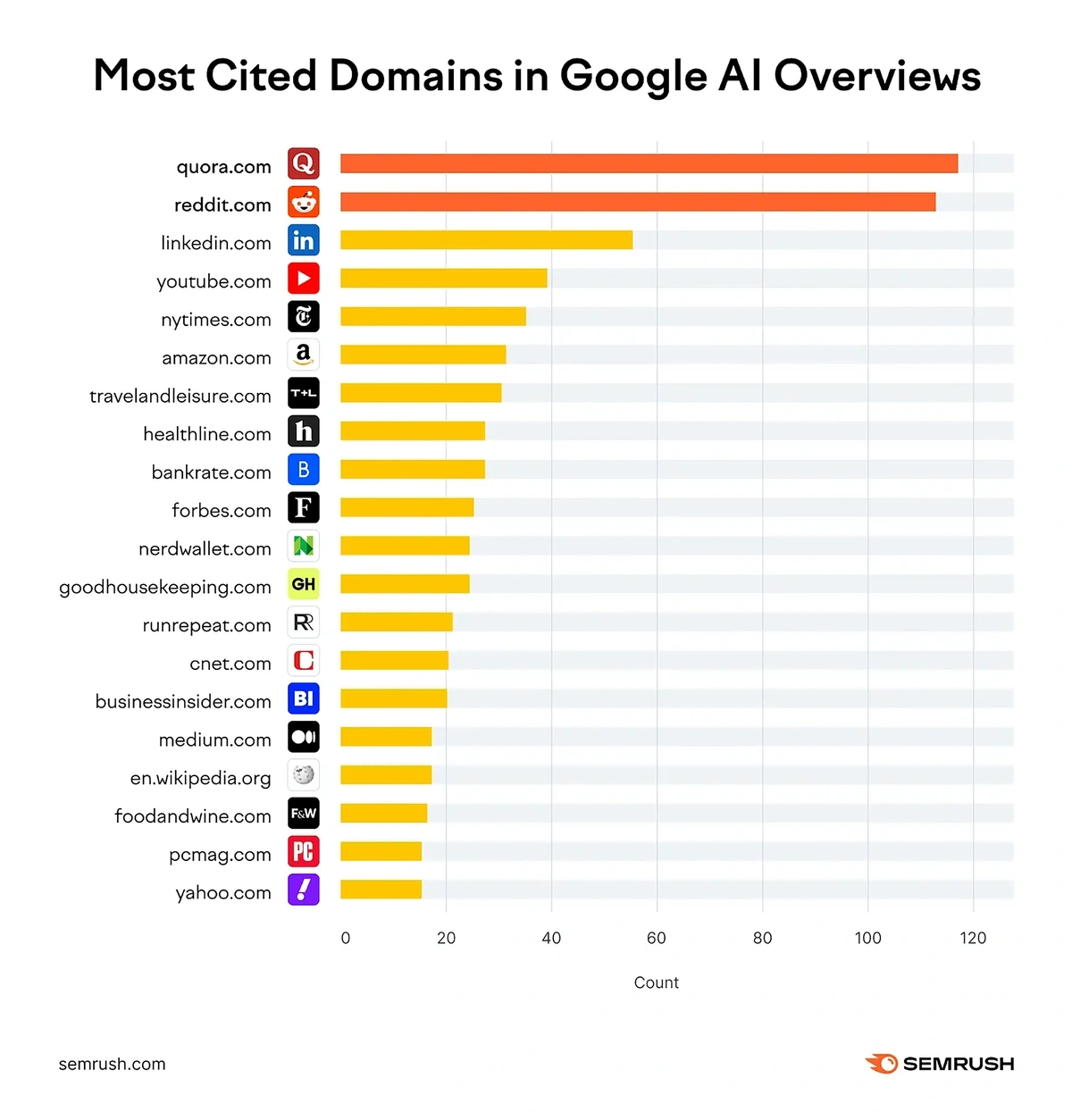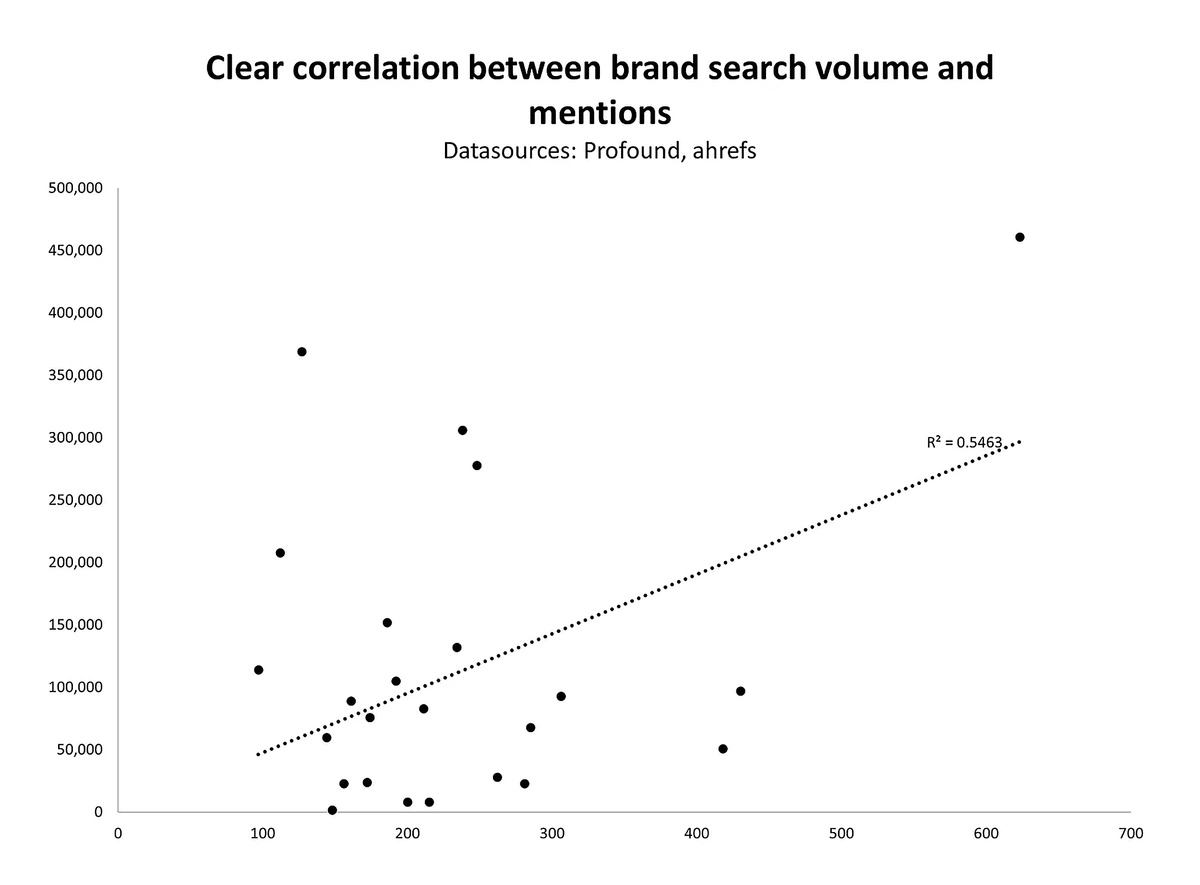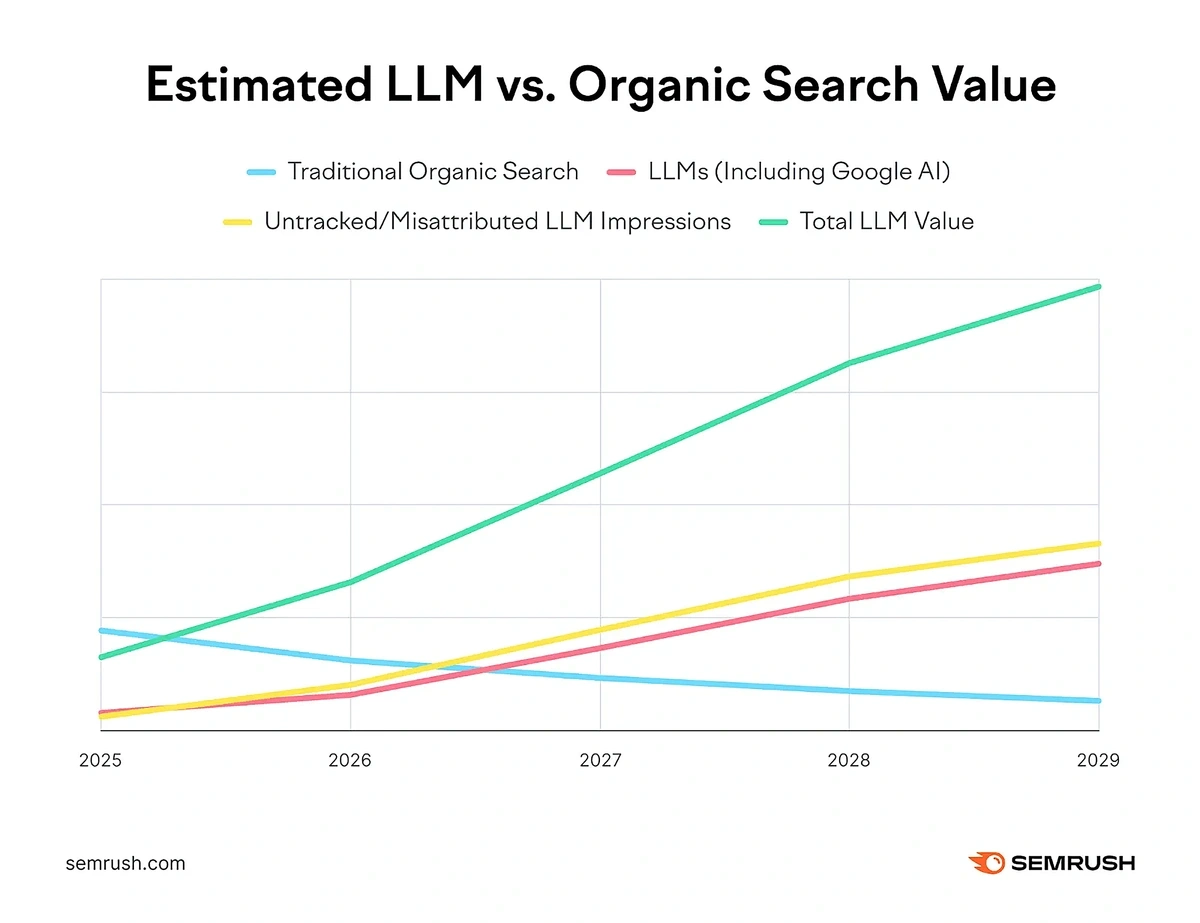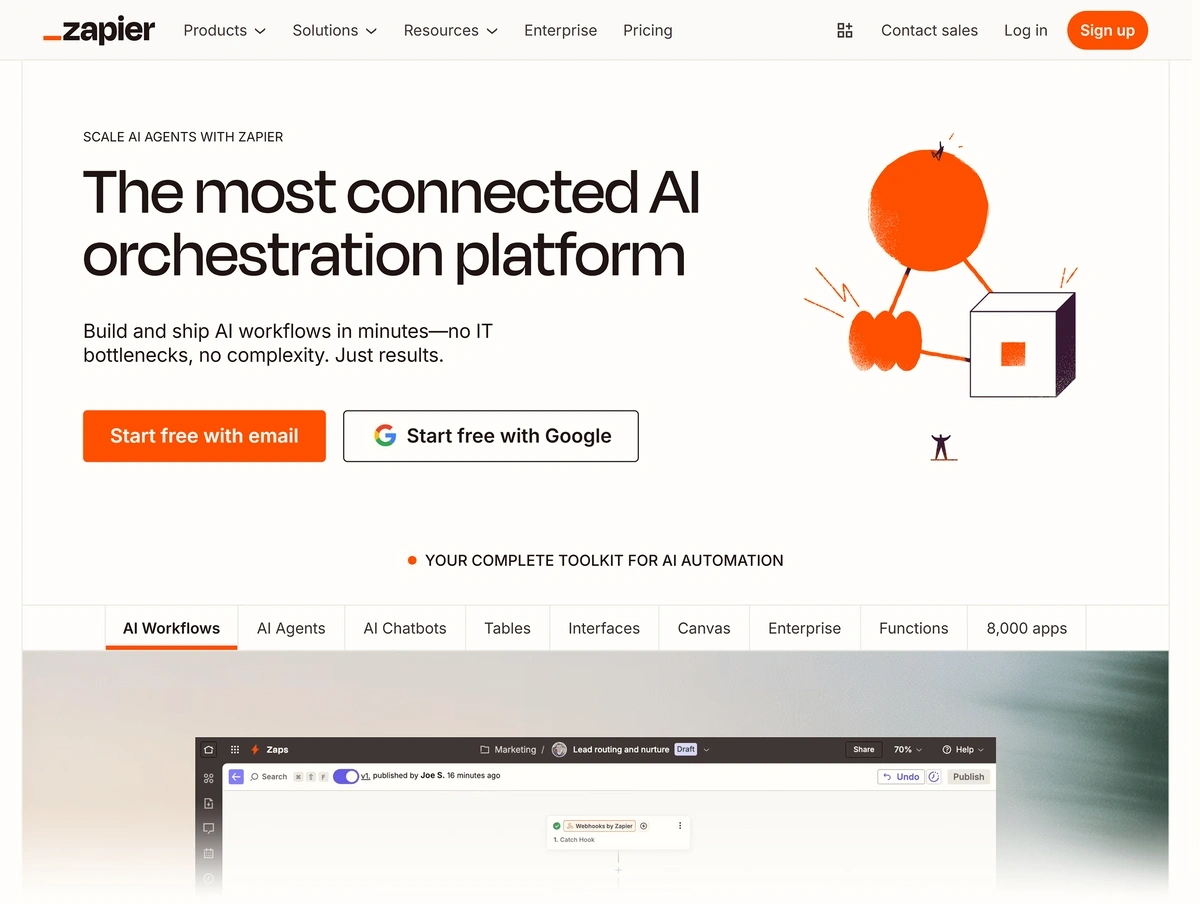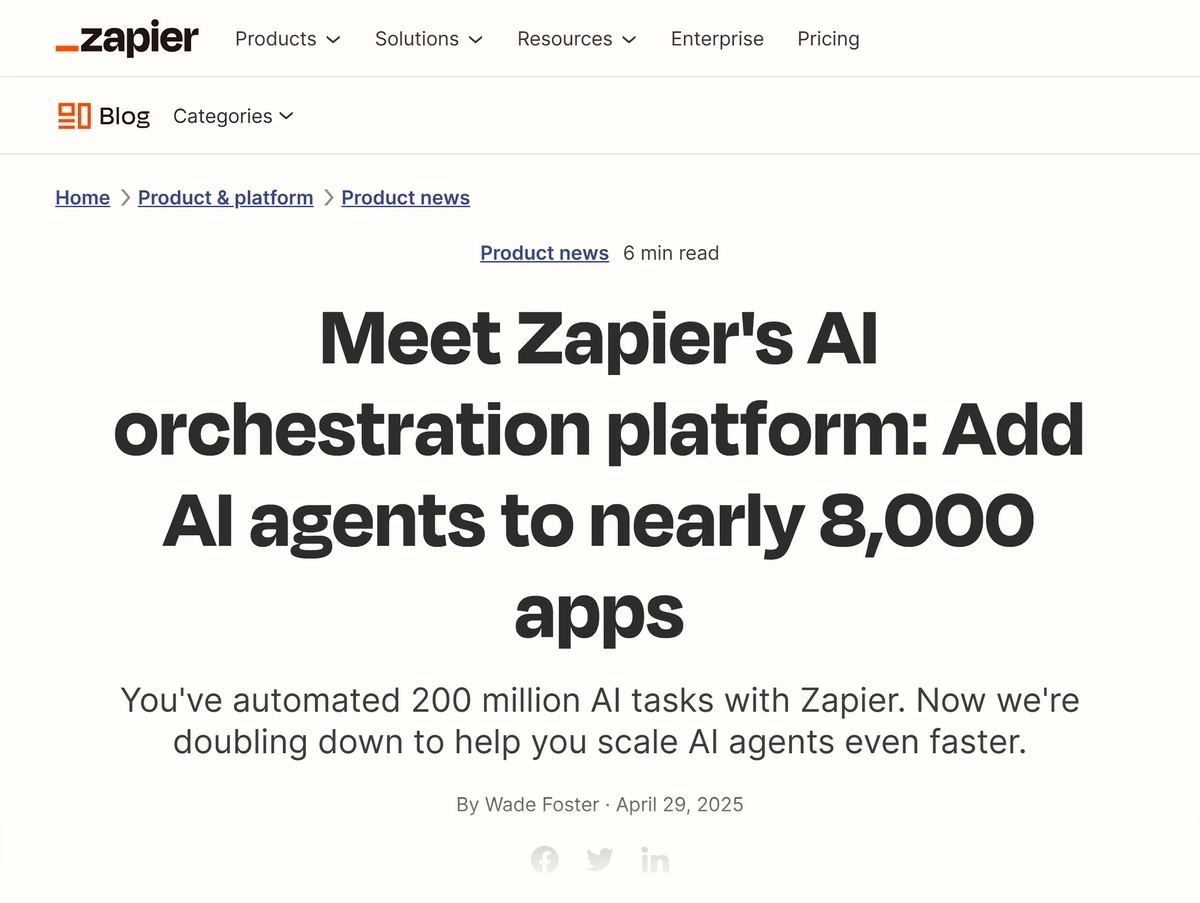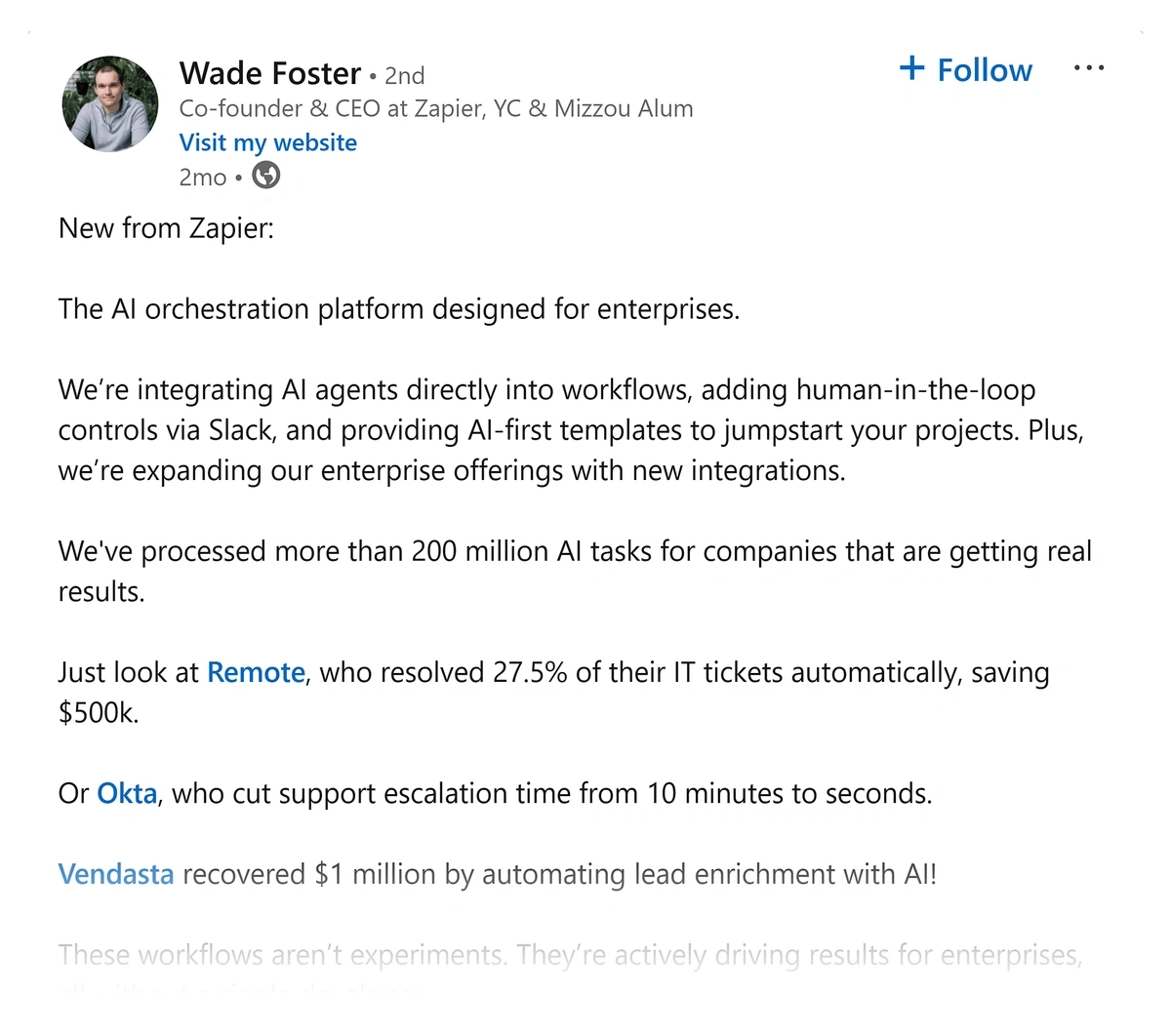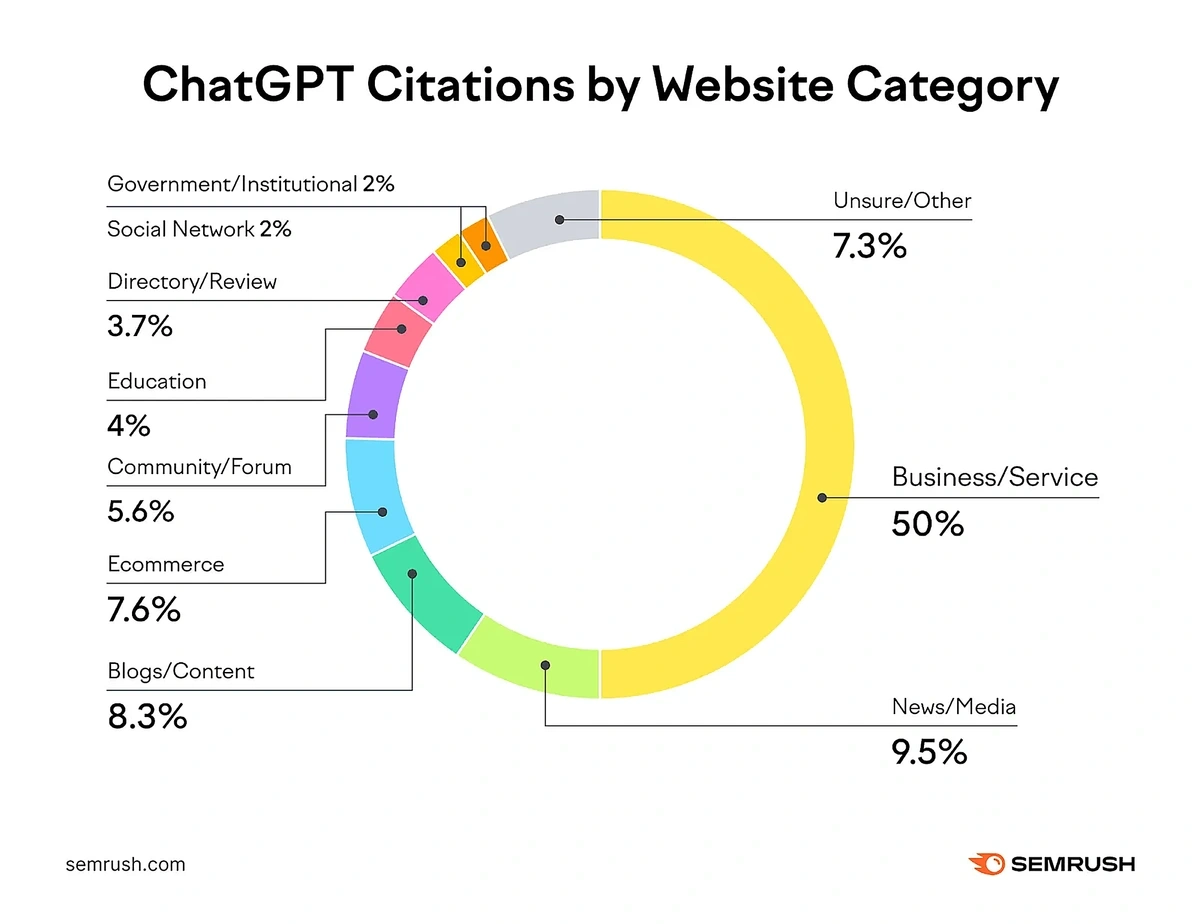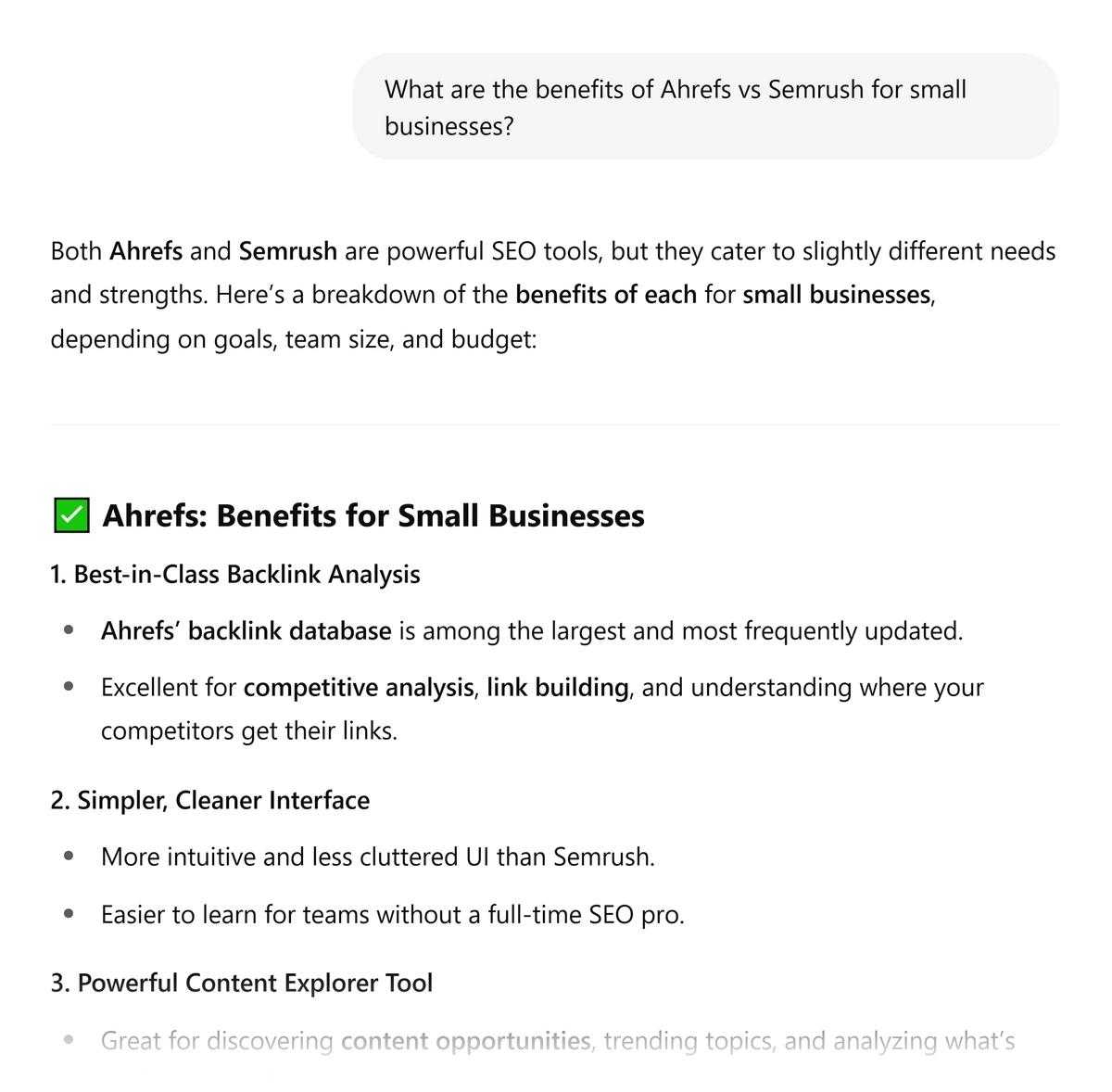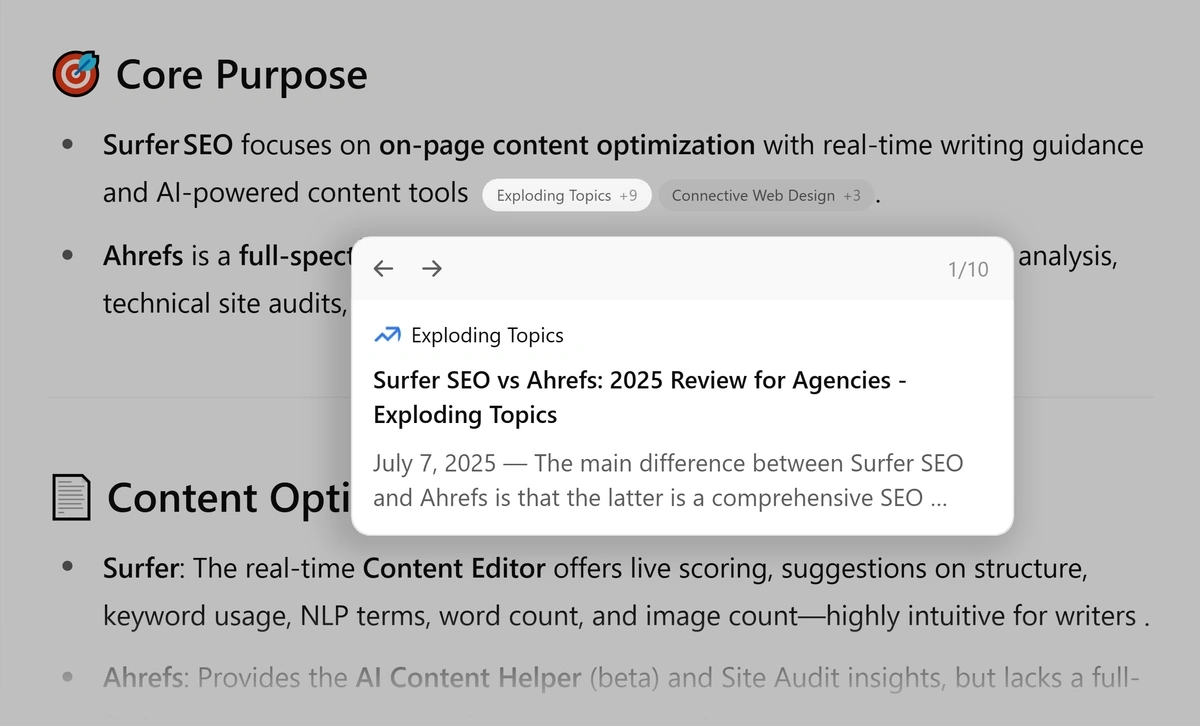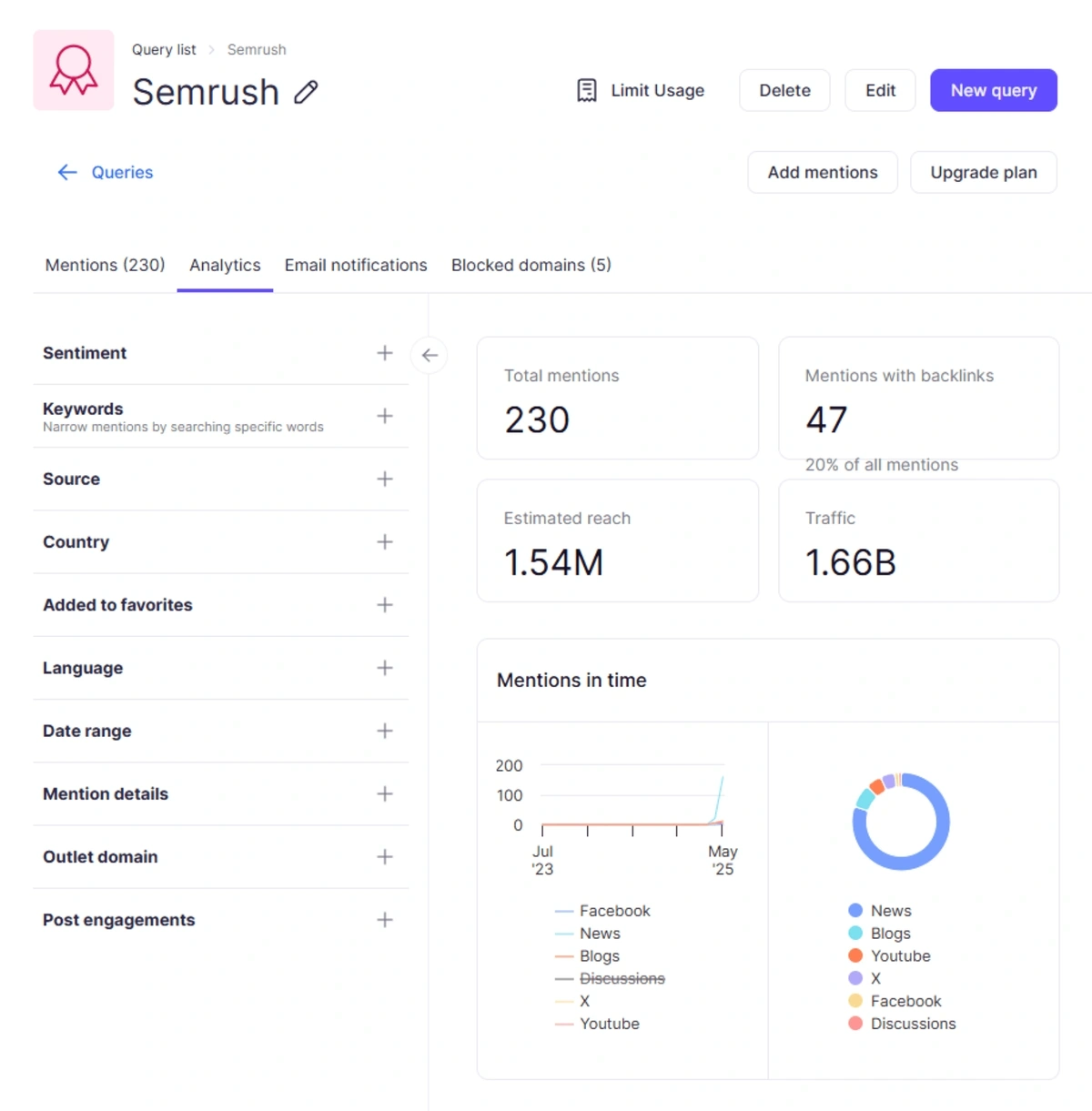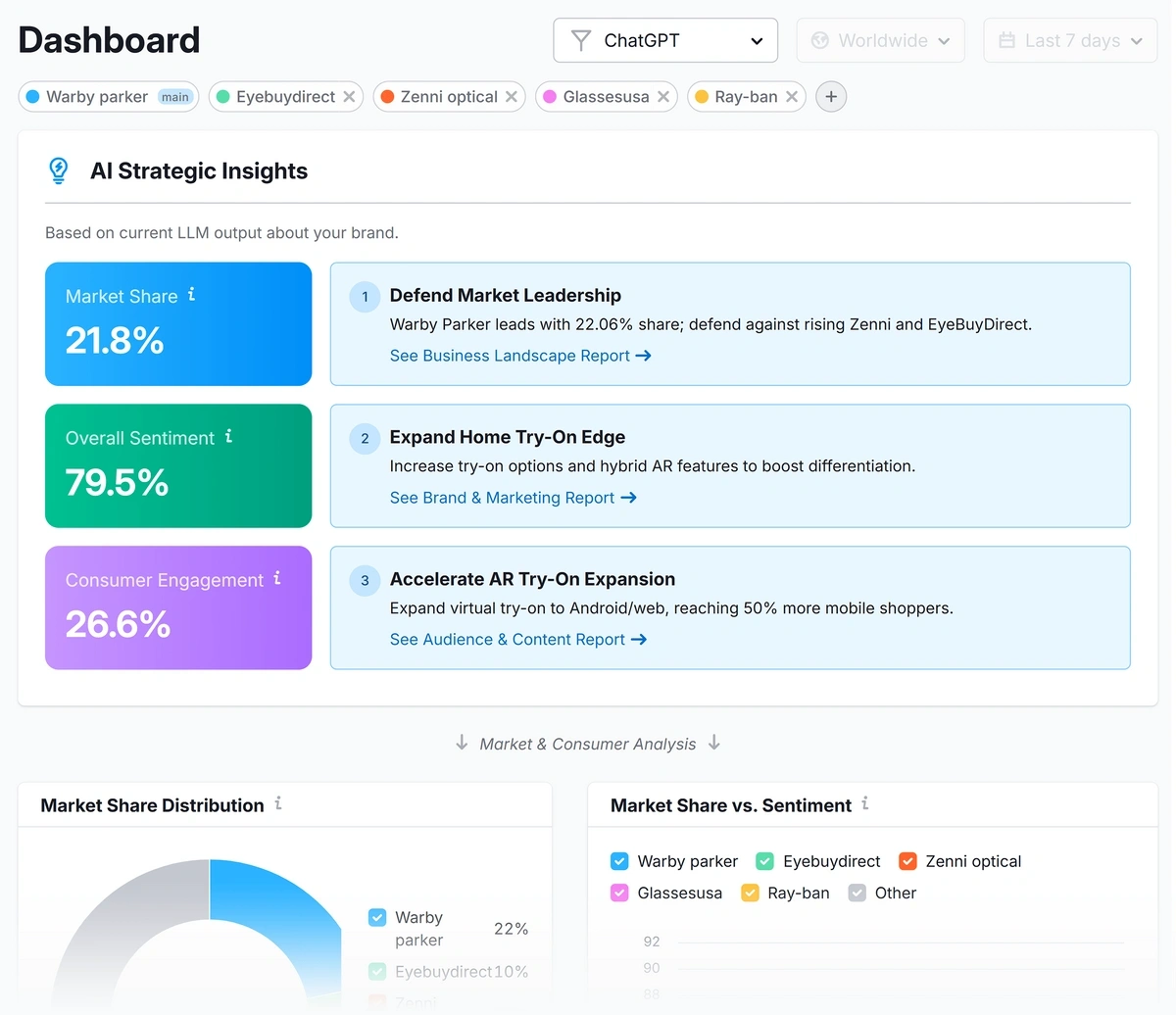Get Advanced Insights on Any Topic
Discover Trends 12+ Months Before Everyone Else
How We Find Trends Before They Take Off
Exploding Topics’ advanced algorithm monitors millions of unstructured data points to spot trends early on.

Features
Keyword Research
Performance Tracking
Competitor Intelligence
Fix Your Site’s SEO Issues in 30 Seconds
Find technical issues blocking search visibility. Get prioritized, actionable fixes in seconds.
Powered by data from
8 Ways to Get More Brand Mentions in ChatGPT
Getting mentions in ChatGPT search will be critical as search habits change.
We're in one of those “adapt or be left behind” kind of moments. If you’re reading this article, you’ve probably chosen to adapt.
One thing you can do right now? Work on increasing how often your brand is mentioned in ChatGPT search with these tips.
Quick Tips for Improving ChatGPT Brand Visibility
| Strategy | Action | Goal |
| 1. Get Backlinks | Focus on increasing the number of high-quality backlinks to your site. | Research suggests that the Authority Score of your site correlates with the number of ChatGPT mentions. Increase your AS with high-quality backlinks. |
| 2. Create High-Quality Content | Include credible sources and expert quotes. Link to credible research and write unique content about emerging trends. | Cater to ChatGPT's preference for original insights. |
| 3. Target Specific Niches | Understand questions customers ask, write step-by-step guides for specific industries, and tailor content to particular business types or use cases. | Address gaps in ChatGPT search results for important questions. |
| 4. Build Communities | Participate meaningfully in Reddit, Quora, and LinkedIn discussions. Provide value to niche forums and professional communities. | Have authentic conversations that position your brand favorably. |
| 5. Earn Citations | Invest in thought leadership content, digital PR campaigns, and high-quality mentions on third-party sites. | Help ChatGPT see your brand as a popular and well-regarded choice. |
| 6. Watch Brand Message Consistency | Keep content updated across your site, and keep social posts consistent and on-brand. | Help ChatGPT formulate accurate answers about you when someone asks. |
| 7. Write Comparison Content | Write content that compares features, competitors, and use cases for different audiences. | Give ChatGPT a high-quality resource when customers are researching a product. |
| 8. Manage Brand Sentiment | Address negative comments/reviews quickly and encourage satisfied customers to share experiences. | Ensure positive brand representation in AI search results. |
Why Focus on Ranking in ChatGPT Search?
Ranking in ChatGPT search will be increasingly important to businesses over the next couple of years. AI search is growing, and more people are finding information outside of Google.
ChatGPT sent 243.8 million visits to 250 news and media websites in April 2025, which is up 98% from 123.2 million visits this January, according to Similarweb data. The number of sites it links to is growing, as is the number of times it links out to websites in general.
According to an AI study by Semrush, AI search visitors will surpass traditional search visitors in 2028 for digital marketing topics, which probably reflects a broader shift across all industries:
If you can put some strategies in place now to get your brand mentioned (and cited with a link) in ChatGPT search, you’ll be ahead of the game and ahead of your competitors as it continues to grow in popularity.
How Does ChatGPT Rank Websites?
ChatGPT doesn't "rank" websites in the same way Google does. Instead, it looks at topics in conversations and examines search results for a close match.
So where does ChatGPT get content from?
Up until June 2025, we thought ChatGPT used Bing to surface its results. Aleyda Solis posted compelling evidence that it uses Google, although OpenAI hasn't confirmed this.
Either way, it's using search in a completely new way.
To be chosen from the results, you need high-quality content. But you also need to broaden your optimization strategy. The SEO strategies that work for LLMs are similar to strategies that work for organic search, but they’re also different in a few big ways.
I’ll show you 8 different things you can start doing now to get your brand appearing in LLMs and talk about how the strategies differ from the SEO strategies you’re used to.
1. Get Backlinks From High-Quality Sites
Kevin Indig found that backlinks could help you to get mentions in ChatGPT.
There are a couple of important findings in his research on how AI weighs links.
First, both followed and nofollowed backlinks help a site to get mentions in ChatGPT.
This is different from the way Google handles nofollow links. It uses them as a hint, but not a strong endorsement of the site they're pointing at.
It seems ChatGPT is less fussy.
Before you rush into building a ton of nofollow links, remember that the quality of your backlinks still matter, whether they are follow or nofollow.
Kevin found a strong relationship between Authority Score and the number of mentions in ChatGPT.
To break this down a little more, Semrush weighs up a number of signals in its Authority Score calculation:
- Number of backlinks
- Backlink quality
- Organic traffic
- Outbound links
So, overall, you want to be increasing the number of high quality backlinks to your site, raising your own Authority Score, and getting more mentions in ChatGPT as a result.
How do you increase backlinks?
We have a full guide on how to get more backlinks. Use the Semrush Link Building Tool to assist you in finding the best possible link opportunities from large, reputable sites.
Remember: Semrush is the only platform that reports the Authority Score.
2. Create High-Quality, Citable Content
AI systems favor content that shows expertise and originality. If your content answers questions thoroughly, it is more likely to surface in ChatGPT.
If you’ve been shifting your content strategy to create deep content that provides quotes, links to sources, and citations, you’re already working on upping your chances of getting mentioned in LLMs.
In fact, in a recent study done by professionals at Princeton and New Delhi Universities, they found that adding quotes, citations, and links to sources “require minimal changes but significantly improve visibility in GE responses, enhancing both the credibility and richness of the content.”
We cite sources extensively in our articles on emerging trends.
You can also create original studies that others will want to cite.
Originality increases the credibility of your content and improves your chances of getting mentioned on other sites.
We recently published an article on the AI trust gap, backed by our own original research.
This study picked up 20+ backlinks within a few days.
But more to the point, research like this increases the chances we’ll get mentioned in ChatGPT. When people ask about AI research, our statistics provide useful insights.
Here’s an example of our article appearing in an answer in ChatGPT:
AI search engines like to have solid facts to cite, and that’s why this tactic works.
How do you increase the quality of your content for mentions in ChatGPT search?
- Back up claims with recent statistics from credible sources
- Include expert quotes and industry insights
- Link to credible research when possible
I also recommend writing great content about emerging trends in your niche. ChatGPT won’t have much information on these topics, and originality helps you fill gaps in its answers.
Don't drop keyword research entirely. You still need to rank in Google. And keyword research helps you to find topics that customers are talking about.
But try to expand on keywords and think about how well your content answers questions.
3. Target Specific Niches and Use Cases
Targeting specific use cases and niches helps you to address gaps in ChatGPT search results. ChatGPT keeps "memories" over time, so it has a ton of personal information about searchers, and it will use that to search in very targeted ways.
This is a shift that we need to think about. Back when SEO was just a baby, you would target broad keywords like:
- SEO
- Best car tires
- Italy vacations
Over time, search engines got smarter, and searchers started using long-tail keywords, like:
- Best SEO tactics for small local businesses
- Best Toyota Prius tires for winter in Minnesota
- Italy vacations for couples on a budget
With AI, searchers are having conversations. Their questions are even more specific, and your content should be, too.
AI search excels at understanding nuanced user intent through natural language processing. This creates opportunities for brands that create content addressing very specific scenarios and pain points.
Here’s an example. Backlinko recently published an article on the best AI marketing tools. Notice how the article opens up with a comparison based on different use cases.
This allows the reader to see what’s best for their own situation.
And it’s the kind of content that LLMs like because it has personalized context.
AI systems often prefer content that directly answers specific questions over general overview content.
How do you target specific questions in content?
- Understand niche questions your customers are likely to ask
- Write step-by-step guides for specific industries or situations
- Tailor content to particular business sizes or use cases
- Address uncommon but important edge cases
Content marketing still works. But targeting a keyword with a page isn't enough now. You'll need to produce content that's of a much higher quality.
As tempting as it is, don't publish spam conetnt to achieve the outcome you're looking for. Will Reynolds cautioned against this and said:
"Don’t sacrifice human trust for the short term win. Once LLMs evolve, websites relying on this method could face penalties or a sudden drop in visibility—just like the early Google updates that targeted manipulative SEO tactics."
Keep it authentic, unbiased, and focus on what your readers want.
Get More Search Traffic
Use trending keywords to create content your audience craves.
4. Build Authority in Communities
Building authority in communities helps to build your brand reputation. AI systems value authentic user conversations about real problems and solutions, and being present in those conversations will help you to be mentioned.
The two most often cited websites in AI Overviews are Reddit and Quora.
Although ChatGPT search acts differently than AI overviews, you can still get a sense of what AI likes to provide users with: authentic conversations about real problems and solutions.
Semrush posts frequently on Reddit with a mix of product guidance and marketing memes.
Posts like this are helpful and entertaining, and they’re authentic rather than spammy.
How can you build authority in communities to influence ChatGPT?
Establish your brand’s presence wherever your audience hangs out:
- Answer relevant questions on Quora in your area of expertise
- Participate meaningfully in Reddit communities related to your industry
- Engage in LinkedIn discussions and industry groups
- Contribute to niche forums and professional communities
Here’s my pro tip: focus on providing genuine value rather than posting promotional content on these sites. AI systems (and users) favor authentic, helpful responses over obvious marketing material.
5. Earn Citations Through Digital PR
Citations are mentions across the web. From what we've learned so far, mentions are more important than links if you want to rank in ChatGPT search.
There’s some emerging research on how ChatGPT searches for things and why it mentions brands. A study by Kevin Indig shows a strong correlation between a brand’s popularity (i.e. how often it’s mentioned and searched by name on the web) and how often it appears in AI searches.
According to Kevin Indig,
“Popularity is the biggest criterion that decides whether a brand is mentioned in AI Chatbots or not. The way consumers connect brands to product categories also matters. Comparing brand search volume and product category presence with your competitors gives you the best idea of how competitive you are on ChatGPT & Co.”
And when you do get mentioned…
Visitors clicking on AI search results act differently, too. In fact, the average AI search visitor is 4.4 times more valuable than the average visit from traditional organic search, based on conversion rate, according to the Semrush study.
This higher conversion rate makes sense. By the time someone clicks through from an AI search result, they've probably already received personalized recommendations and compared options. They're further down the buying funnel thanks to everything they’ve already learned from AI and more ready to make a decision.
Thought leadership and digital PR expand your potential reach.
Digital PR involves getting your brand mentioned in online publications, industry blogs, podcasts, and other third-party platforms. Instead of looking for backlinks, you want to be mentioned in expert commentary and discussions that are relevant to your product.
Unlike traditional advertising, digital PR creates authentic mentions.
This helps ChatGPT to see the pattern: repeated mentions from authoritative sources. And that improves your visibility in ChatGPT answers.
We recently spoke to 9 digital PR experts about this exact strategy.
How can you increase mentions and citations?
- Invest in thought leadership content that establishes your brand authority
- Launch digital PR campaigns that can get you mentioned in online publications
- Encourage authentic reviews and mentions on third-party sites
- Try guest posting for high authority sites
Want to Beat Your Competition?
Find out who’s linking to them and build a better backlink strategy.
6. Watch Your Brand Message Consistency
Message consistency helps ChatGPT to formulate accurate answers. It works by predicting the next likely word in a sentence, so you need to be sure that it's seeing the same information everywhere.
Sync up information about your brand from different locations all across the web, like your website, social profiles, review sites, Reddit mentions, and more. Inconsistent messaging across all those touchpoints can confuse AI systems about how to accurately represent your brand.
This is your chance to own the narrative. Develop clear, consistent language for describing your business’s key benefits, target audience, and unique differentiators, and use it everywhere!
Notice how Zapier calls itself an “AI orchestration platform”?
This messaging is reflected in many places, including its blog…
And posts from its CEO on LinkedIn.
When you repeat patterns in many places, LLMs pick up on the repetition and are more likely to use your words in answers.
How can you be more consistent with branding?
- Keep content updated across your site to avoid mixed messaging
- Curate your online presence by reaching out to sites with outdated information and asking for updates
- Make sure social posts are consistent and on-brand
Maintain consistency and try to own your story across:
- Your main website copy and product or service descriptions
- Social media profiles and regular posts
- Paid ads
- Press releases and media kit materials
- Guest content and speaking engagements
7. Write Awesome Comparison Content
Comparison content supports conversations that involve product comparisons. According to a Semrush study, half of all ChatGPT citations point to business or service websites.
So, AI systems often look at business websites as authoritative sources for information.
Searchers often turn to LLMs for information on complex queries that they need to drill down into.
Comparisons between products are a good use case for AI search.
We publish a ton of comparisons on SEO, AI, and marketing tools to help our readers grow their business.
LLMs cite us as a source because we investigate each tool properly to inform our reviews.
This type of high-quality comparison content positions your website as a go-to resource for industry information, increasing the likelihood that AI will reference it when answering related questions.
How can you improve the quality of comparison content?
Work on creating:
- Honest, bottom-of-the-funnel comparison guides that include your competitors
- Feature comparison tables
- Educational content that establishes your expertise
- Comprehensive buyer's guides for your industry
- FAQ sections that address real customer concerns
- Case studies featuring real wins (with real statistics) from your customers or clients
8. Monitor and Manage Brand Sentiment
Brand sentiment is super important to ChatGPT. It pulls content from review sites, social media discussions, and forums.
Potential customers can ask AI about the integrity of your brand and get instant feedback. You want AI to answer in your favor.
The best way to make that happen? Tracking and improving brand reputation.
There are many tools out there you can use to monitor the web for new mentions of your brand so that you can respond accordingly.
For example, Semrush’s Brand Monitoring tool can track brand mentions across:
- Review sites and platforms
- Social media discussions
- Industry forums and communities
- News articles and blog posts
The tool analyzes the sentiment for each mention so you can easily keep an eye on your reputation without spending a ton of time on it. Plus, there are a lot of filters to zero in on sentiment from different demographics:
How can you keep your brand’s sentiment in AI search on the positive side?
- Address any negative comments or reviews quickly
- Encourage satisfied customers and brand fans to share their experience
- Highlight positive reviews and case studies on your website
- Build relationships with industry influencers or thought leaders
- Add FAQs to your website to counter any misconceptions
Increasing ChatGPT Mentions Requires Joined-Up Thinking
We’re beyond the days of ranking in organic search alone. The game has changed, and there are many AI search engines to think about.
If you’re ready to prep your brand for AI search growth, the first step is measurement.
We have a detailed post on the best AI search monitoring tools. My go-to is the Semrush AI Visibility Toolkit.
It shows me each brand’s AI market share, a comparison with top competitors, opportunity suggestions, and the overall sentiment in AI search engines. This is great for marketers who want to rank in ChatGPT search.
Have an enterprise business? Get started with Semrush Enterprise AIO, which is tailored to tracking brand mentions in ChatGPT and other search engines. Enterprise AIO is a powerful tool that helps you to monitor emerging AI search trends and regain control of how your brand is represented.
Stop Guessing, Start Growing 🚀
Use real-time topic data to create content that resonates and brings results.
Exploding Topics is owned by Semrush. Our mission is to provide accurate data and expert insights on emerging trends. Unless otherwise noted, this page’s content was written by either an employee or a paid contractor of Semrush Inc.
Share
Newsletter Signup
By clicking “Subscribe” you agree to Semrush Privacy Policy and consent to Semrush using your contact data for newsletter purposes
Written By


Jolissa Skow is a senior content writer and content strategist with a background in SEO, Google Analytics, and WordPress. She's be... Read more




